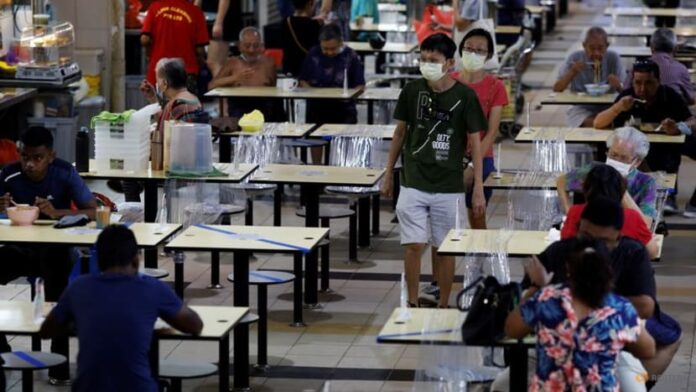COVID-19 Restrictions Extended To November 21; Stabilization Takes More Time: Ministry of Health
Singapore: Singapore’s Ministry of Health (MOH) said on Wednesday (October 20) that Singapore will extend its current COVID-19 restrictions for another month due to the need for more time to stabilize the situation. The stabilization phase restrictions began on September 27 and were originally scheduled to last until October 24, aiming to relieve the pressure on the country’s healthcare system. It has now been extended to November 21. Among other measures, social gatherings can only be held twice at most, and working from home becomes the default arrangement. “Unfortunately, given that our healthcare system is under constant pressure, more time is needed to stabilize the situation,” the Ministry of Health said at a media conference. It added that these measures will be reviewed within two weeks and then adjusted according to the COVID-19 community. The Ministry of Health said that current measures help “slow down the speed of transmission”, but the number of daily cases is still rising, and many vulnerable patients need intensive care. The number of new COVID-19 cases in Singapore hovered around 3,000 a day and reached a high of 3,994 on Tuesday. Pending review: LAWRENCE WONG
Finance Minister Huang Xuncai told reporters on Wednesday that with the medical system under pressure, it is “not just a question of adding beds or buying new equipment”. “Our medical staff are exhausted. Although we are working hard to strengthen the team, it will take time for these reinforcements to arrive. Under the current circumstances, we face a considerable risk of overwhelming the medical system,” said Mr. Huang. “This means that we must continue to implement stabilization measures for another month after October 25.” However, this does not mean that “measures will have to remain frozen or static throughout this entire month”, said the co-chair of the country’s COVID-19 task force. “We will continually review the situation in the coming weeks to see if there is any scope for calibrated easing and in instances where the risks are acceptable … we will consider moving first on these measures,” he said.






